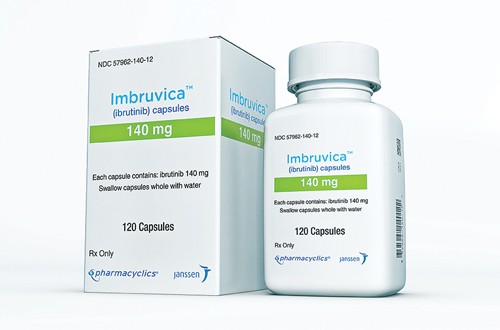
A phase III trial of Johnson & Johnson (J&J) and Pharmacyclics’ Imbruvica in combination with two other drugs has been halted early after the regimen showed a significant benefit.
Adding Imbruvica (ibrutinib) to therapy with Biogen Idec’s Rituxan (rituximab) and bendamustine resulted in a significant increase in progression-free survival (PFS), according to the results of the HELIOS trial, which enrolled patients with chronic lymphocytic leukaemia (CLL) or small lymphocytic lymphoma (SLL).
As a result, the trial’s independent data monitoring committee has recommended that the study be un-blinded and patients receiving placebo offered the option to receive Imbruvica.
The data from the trial will form the basis of a regulatory filing to extend the indications of Imbruvica to include combination therapy, according to Pharmacyclics, which agreed to be taken over by AbbVie in a deal valued at around $21bn.
Imbruvica is one of J&J’s top growth products in oncology and pulled in $200m in 2014, its first full year on the market, and has been tipped to become a blockbuster with sales of more than $1bn this year and almost $6bn at peak.
The drug is a Bruton’s tyrosine kinase (BTK) inhibitor – licensed by J&J from Pharmacyclics in 2011 in a deal valued at up to $975m – and recently became the first drug approved by the FDA to treat Waldenström’s macroglobulinaemia (WM), having already been cleared for CLL and mantle cell lymphoma (MCL).
The HELIOS study enrolled 578 previously-treated CLL and SLL patients – excluding those with a particular cancer mutation called a 17p deletion – who received rituximab and bendamustine for up to six cycles along with either placebo or ibrutinib. Top line data from the trial will be presented at the American Society of Clinical Oncology (ASCO) meeting later this year.
An earlier trial of the drug as a single-agent therapy in CLL indicated it was more effective than GlaxoSmithKline (GSK) and Genmab’s Arzerra (ofatumumab).




